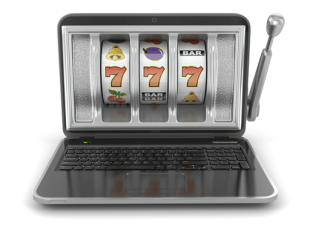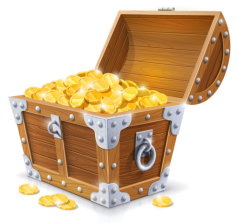![]()
Bally's Casino Robbery Suspect. Fitz Casino Robbery Suspect. The Tunica County Sheriff's Office is actively investigating two robberies that occurred in the�...
The Fitzgeralds logo is a 4 leaf clover their theme, the luck of the Irish. But it was an unlucky morning at the Tunica County Casino, when at 7�...
Third Tunica County casino closes since 2014, company cites Arkansas competition
Caesars Entertainment announced it will end all gambling at Tunica Roadhouse Casino on January 31.Table 8.3. Casino Sector Percentage of Total Service Industry; Tunica.... 1991). These studies suggest that both economic (e.g., robbery and fraud) and public.
2004-01-11 04:00:00 PDT Tunica, Miss. -- She had a bomb. That's what she told the cashier. Hand over the money, she said, or the casino�...
| CASINO | NAME | FREE BONUS | DEPOSIT BONUS | RATING | GET BONUS |
| Casumo | - | 200% bonus + 180 free spins | PLAY |
||
| Kaboo | 5 free spins | $200 bonus + 100 free spins welcome package | PLAY |
||
| Royal Panda | - | 100% bonus up to $100 | PLAY |
||
| Thrills | - | 200% bonus up to $100 + 20 super spins | PLAY |
||
| Karamba | - | $100 bonus + 100 free spins welcome package | PLAY |
||
| BetSpin | - | $200 bonus + 100 free spins welcome package | PLAY |
||
| PrimeSlots | 10 free spins | 100% bonus up to $100 + 100 free spins | PLAY |
||
| Guts | - | $400 bonus + 100 free spins welcome package | PLAY |
||
| Spinson | 10 free spins no deposit | Up to 999 free spins | PLAY |
||
| MrGreen | - | €350 + 100 free spins welcome package | PLAY |
||
| GDay Casino | 50 free spins | 100% unlimited first deposit bonus | PLAY | ||
| CasinoRoom | 20 free spins no deposit | 100% bonus up to $500 + 180 free spins | PLAY |
||
| LeoVegas | 20 free spins no deposit | 200% bonus up to $100 + 200 free spins | PLAY |
Gambling in Mississippi: Its Early History | Mississippi History Now Casino robberies in tunica

Exclusive crime heat map and statistics for neighborhoods within Tunica, MS. Crime forecast. Safest Tunica neighborhoods.. Murder, Rape, Robbery, Assault�...
Las Vegas, with 150 casinos, has had 14 robberies this year.. In Tunica County, home to nine Delta casinos and a population of 9,400, arrests�...
 Gambling in Mississippi: Its Early History | Mississippi History Now Casino robberies in tunica
Gambling in Mississippi: Its Early History | Mississippi History Now Casino robberies in tunica
Cortez Watts v. State of Mississippi � internetbingogames.info Casino robberies in tunica
Bally's Casino Robbery Suspect. Fitz Casino Robbery Suspect. The Tunica County Sheriff's Office is actively investigating two robberies that occurred in the�...TUNICA, Miss. � Tunica County deputies have arrested a third man in connection with a series of recent robberies at area casinos. Sheriff's department Cmdr. Cedric Davis told The Commercial Appeal that Johnny Clark, 54, was arrested Friday in Michigan after deputies received a tip. Clark is awaiting extradition.
View detailed crime rates in Tunica, MS as well as a Tunica crime density heat map.
Casino robberies in tunica
 Gambling in Mississippi: Its Early History Mississippi History Now � � Gambling in Mississippi: Its Early History Avelez Hotel in Biloxi, built in the late 1920s, was one of many hotels on the Mississippi Gulf Coast that offered gambling activities.
Gambling in Mississippi: Its Early History Mississippi History Now � � Gambling in Mississippi: Its Early History Avelez Hotel in Biloxi, built in the late 1920s, was one of many hotels on the Mississippi Gulf Coast that offered gambling activities.It was demolished in the 1950s.
Postcard courtesy Deanne Nuwer.
In early 20th century, The Casino robberies in tunica House Hotel in Biloxi offered slot machines for its guest, along with dancing and golfing.
Today, in early 21st century, it awaits renovation.
Postcard courtesy Deanne Nuwer.
Postcard showing the entrance to the Buena Vista Hotel in Biloxi.
The hotel was damaged by fire and then neglect before it was ultimately demolished.
Its site is now a parking lot for the Beau Rivage Casino.
Postcard courtesy Deanne Nuwer.
Out for a night in Biloxi.
Gambler Bob Thompson, center, in the lobby of the Avelez Hotel cashing in his winning bet against Salvatore Joseph Sicuro.
Sicuro, rear, had his lounge learn more here in the Avelez Hotel.
Circa 1946 photograph courtesy Claude Sicuro.
Out for a night in Clarksdale, Mississippi.
Gamblers in a juke joint.
November 1939 photograph by Marion Post Wolcott.
Courtesy Library of Congress, Prints and Photographs Division.
Call No: LC-USF34-052487-D The Broadwater Beach Hotel was built in 1938 specifically to cater to out-of-state and Mississippi gamblers.
Damaged by Hurricane Camille, the hotel was restored and still exists.
Postcard courtesy Deanne Nuwer.
Gamblers in the lobby of the Tivoli Hotel on the Gulf Coast.
Late 1940s photograph courtesy Deanne Nuwer.
Gambling in Mississippi: Its Early History By Deanne S.
Nuwer Gambling in Mississippi is centuries old.
Before Europeans or Africans called the state their home, Choctaw, Chickasaw, and other Indian peoples in the region gambled regularly.
American Indians were fond of games and gambling, according to early accounts.
Players used special sticks to hurl the ball.
This game resembled a modern-day combination of football and lacrosse, without helmets and padding.
Cards and colonists After Europeans and Africans established themselves in the Mississippi region, gambling practices continued in different forms.
Checkers, cards, and billiards were popular wagering games among early French colonists.
Card playing was especially popular.
Promissory notes have been found in early 18th-century settlements written on the backs of homemade cards with the loser pledging a future payment to the winner.
When Mississippi was a Spanish territory in the 1790s, horse racing enthusiasts built the Fleetfield Race Track in Natchez.
Completed in 1795, Natchezians went to the track and placed bets on favorite horses and jockeys, while enjoying the social atmosphere.
Thus, when Mississippi became a state December 10, 1817, gambling was already a part of its past.
Billiards in Biloxi During the 1830s and 1840s, the population of the state grew.
Entertainment opportunities also increased.
Many early 19th-century Mississippians went to the Mississippi Coast on the Gulf of Mexico to enjoy its resorts and mild weather.
Hotels offered lawn bowling, billiards, sailing, hunting, and dancing.
All of the hotels provided entertainment and gambling options.
Mississippians also traveled to Natchez and Vicksburg on the Mississippi River where gambling was prevalent, especially at The Landing, a riverside region in Vicksburg, and in the Natchez-Under-the-Hill district.
In these two river cities, steamboat travelers encountered gambling houses where billiards, card games, and other betting events occurred.
Horse racing and cockfighting were also popular betting sports in antebellum Mississippi, as was riverboat gambling.
Many people from New Orleans visited the Mississippi Gulf Coast, enjoying the local hospitality at the growing number of hotels.
Schooner races also became a popular activity for betting on the Gulf Coast.
Many seafood factories had been built along the Coast by the 1890s, and each one of them constructed its own schooners for harvesting shrimp and oysters.
However, in June and July, the factories organized races for cash prizes to see which one of them had the fastest schooner.
By 1912, the entire Mississippi Gulf Coast was connected by shell roads, railroad lines, and a trolley system.
The Coast and Piney Woods regions were booming.
When World War I ended in casino gold restaurants strike resort, the Piney Woods region provided much-needed lumber to markets around the world.
https://internetbingogames.info/casino/r-kelly-foxwoods-casino.html Prohibition was enacted July 1, 1919, some of the ships once used for hauling lumber engaged in transporting illegal liquor to entertainment establishments along the Mississippi Coast and to other major cities in the Gulf region.
From the Caribbean Islands, particularly Cuba, to various ports along the Mississippi Sound, ships secretly sailed around the Barrier Islands and bayous.
One island, Dog Key, was a particularly popular stopping-off point for those transporting illegal liquor.
Dog Key Island, which was only three miles long and about 487 acres, had been used for years by local fishermen because artesian springs were there, providing fresh water.
During Prohibition it became a haven for bootleggers.
Realizing its importance because of the fresh water supply and its location twelve miles outside of the jurisdiction of United States claims, three men decided to develop a resort there.
The men, Colonel Jack W.
Any visitor who paid the 75-cent fare could take the short boat trip of about thirty minutes to the Isle of Caprice and gamble at its casino.
There were roulette wheels, dice tables, and other gambling devices available.
By 1932, the Isle of Caprice Resort was completely submerged.
These hotels and many smaller establishments offered slot machines for their guests, along with other activities such as dancing and golfing.
Slot machines also appeared in grocery stores and other businesses.
Gambling devices were more prevalent along the Gulf Coast and in Mississippi River towns, where gambling had historically existed, than in other sections of the state.
Yet, elsewhere in the inland counties of Mississippi, roadhouses supplied back room gambling activity.
Because gambling was so profitable, the Broadwater Beach Hotel was built in 1938 specifically to cater to out-of-state and Mississippi gamblers who could afford to gamble.
People flocked to the gaming establishments that lined casino robberies in tunica Mississippi Gulf Coast.
During the Great Depression of the 1930s, gambling was viewed as a means to stimulate the economy, especially along the Gulf Coast.
Throughout the 1940s and 1950s, gambling expanded along the Coast.
By 1950, the opening of U.
Highway 90, the first four-lane super highway, boosted travel along the Coast.
In nightclubs lining Highway 90, entertainers such as Elvis Presley, Jayne Mansfield, Andy Griffin, and Hank Williams Sr.
In early 1950, a group of Gulf Coast ministers organized a movement to outlaw gambling on the Coast.
Calling themselves the Biloxi Protestant Ministerial Association and a Group of Interested Laymen, they sought to outlaw slot machines in Harrison County.
Their concern was that laws were not being enforced regarding the illegal operation of slot machines.
Meeting regularly with like-minded citizens in their respective churches, they advertised in The Daily Herald a list of statutes that prohibited gambling as outlined in the Mississippi Law Code of 1942.
The group believed gambling was harmful to family life and to individuals who could not control themselves when they spent too much money at the slot machines.
By 1951, the U.
Senate Committee to Investigate Organized Crime in Interstate Commerce had also begun hearings to determine the extent of organized crime in the casino industry throughout the United States.
Senator Estes Kefauver from Tennessee headed the committee and it was soon called the Kefauver Committee.
The Gulf Coast ministers and citizens used the hearings to call more attention to the slot machine problem on the Coast.
They advertised the fines and imprisonment stipulations for breaking the Mississippi laws and continued to demand the enforcement of those laws by local officials.
As a result, law officials seized slot machines in various clubs and stores in Harrison County and dumped them in the Back Bay.
The law officers also arrested the owners of the machines.
Officials at Keesler Air Force Base, who also believed that gambling was a bad influence on the https://internetbingogames.info/casino/hawaiian-gardens-casino-construction.html and women stationed there, joined in the call for enforcing anti-gambling laws in Harrison County.
Keesler officials were concerned that the 327 bars, supper clubs, and other businesses in Harrison County would exploit the thousands of men and women who were stationed there.
It was casino robberies in tunica that illegal slot machines tempted the young men and women to gamble away their hard-earned money when the chances of winning at the slot machines were almost non-existent.
After several days of investigations and hearings in Biloxi, the Kefauver Committee condemned the gambling establishments, but did not close them.
After this report, a crackdown on gambling operations did occur for awhile in Harrison County.
The mayor of Biloxi promised to enforce laws as related to slot machines and other gambling devices during his administration.
Thereafter, gambling operations began to decline.
Clubs on the Coast Throughout the 1960s, clubs such as the Fiesta, Gus Stevens, the Beach Club, and Mr.
Back room gambling had not stopped.
Across the state and along the Coast, these clubs and other establishments had slot machines and such gambling devices as roulette wheels, even as public opinion was turning against gambling.
Hurricane Camille hit the Mississippi Coast on August 19, 1969, destroying homes and businesses.
In the 1980s, the economy of the rain casino entertainment region was still floundering.
Casinos and the new century The 1990s, however, brought new gambling interests for Mississippi when Congress passed the National Indian Gaming Act in 1988.
Consequently, by 1994, the Mississippi Band of Choctaw Indians had opened the Silver Star Casino in Neshoba County.
Along the Mississippi Gulf Coast and in towns along the Mississippi River, local legislators also realized the revenue advantage of legalizing click at this page />Mississippi Senator Tommy Gollott, a Democrat from the 50th Senate District in Harrison County, spearheaded legislation for dockside gambling to help the slumping state economy.
As a result, on June 29, 1990, the Mississippi Legislature passed the Mississippi Gaming Control Act.
This act stated that casino gambling was allowed only in counties along the Mississippi River and the Gulf Casino robberies in tunica, as long as the voters in those eligible areas approved it.
To date, in addition to Neshoba County, legalized casino gambling exists in Tunica, Washington, Adams, Warren, Battle ground casino, and Harrison counties.
Hancock County, on December 5, 1990, was the first Mississippi county to approve dockside gambling.
Harrison County quickly followed.
Two years after the Gaming Control Act passed, the Isle of Caprice Casino opened in Biloxi.
By October 1992, Splash Casino in Tunica County opened.
Today, in 2005, there are about thirty gaming properties along the Gulf Coast and Mississippi River.
Over 42 million people visited Mississippi casinos in 2004, with the vast majority of them coming from outside of the state.
Posted March 2005 References: Gambling Vertical File, Down South Magazine, May-June 1952 and September-October, 1958; Mississippi Guide, December 8, 1937, Biloxi Public Library, Biloxi, Mississippi, The Biloxi News, May 30, 1926; and New Orleans, The New Orleans Item, July 11, 1926.
Hearing Before the Preparedness Subcommittee of the Committee click the following article Armed Services, United States Senate 82nd Congress First Session on Illegal Gaming Activities Near Keesler Air Force Base.
Choctaws in a Revolutionary Age, 1750-1830, Lincoln, Nebraska: University of Nebraska Press, 2002: 41-42.
The Mississippi Gulf Coast: Portrait of a People.
Sun Valley, California: American Historical Press, 1999: 48.
Source Material for the Social and Ceremonial Life of the Choctaw Indians.
Tuscaloosa, Alabama: University of Alabama Press, 2001: 140-160.
Mississippi Historical Society � 2000�2017.






New surveillance video released in Bellagio casino heist
Access Denied Casino robberies in tunica
Welcome to Tunica - casino robbery capital of the world! [Archive] - Casino News and Operations Forum Casino robberies in tunica
After being recognized by Thayer resident at Tunica casino. responded to the bank robbery and collected evidence at Great Southern Bank in�...View detailed crime rates in Tunica, MS as well as a Tunica crime density heat map.
ROBINSONVILLE � Tunica wants to be known for entertainment, fun and luck � not as the casino robbery capital of America. But thus far the.






